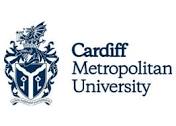The BSc Banking and Finance degree at Cardiff Met covers the key concepts of banking and finance and provides students with an understanding of the importance of this area in a practical and theoretical context.

The BSc Banking and Finance degree at Cardiff Met covers the key concepts of banking and finance and provides students with an understanding of the importance of this area in a practical and theoretical context.
The course will equip students with the tools and analytical capabilities to identify and resolve complex problems in a dynamic and strategic way. In addition, this programme will provide students with highly transferable skills as well as a deep knowledge of a broad range of financial software.
Banking and finance is fundamental to the world economy as it ensures that new and existing companies can raise the funds needed to undertake profitable investment ideas. This course is ideal if you have no previous experience in banking and finance but want to learn more about this industry.
In the first year you will gain an insight into how financial institutions fit into the world economy, along with key quantitative methods techniques needed for a career in this industry.
The second year will involve expanding your knowledge by studying the impact of different types of risk on both companies and countries. The final year will enhance your understanding of the importance of remaining informed on contemporary issues in the wider business context by undertaking independent research.
The teaching will involve lecturers, workshops and seminars which will have both academic knowledge and practical experience. The practical experience will include the use of financial software, to teach you the skills you need for the workplace after graduation.
This degree will undergo a periodic review in 2023/4 to ensure the course content is and remains current. Should any changes to course content be made as a result of the review, all applicants will be informed once changes are confirmed.
Course Content??:
Please note optional modules are delivered subject to demand and availability
Learning & Teaching:
Entry Requirements? & How to Apply:
About
Cardiff Met is proud of all its alumni and we continue to support you as you embark on life after university.
We provide early career guidance for recent graduates and aim to keep you connected throughout your career.
We also provide opportunities for you to inspire our students by speaking at events or offering work experience opportunities, and this is just the tip of the iceberg!
We love hearing about where life has taken you since graduating and keeping you up to date with all that's going on at Cardiff Met.
Our history
Our history traces back to 1865 when the School of Art first opened in the Old Free Library in Cardiff.
Since we developed into a university, we have remained rooted in Wales while providing practice-focused and professionally oriented education to students from around the globe.
The institution has gone through numerous name changes over the years, eventually becoming what we know today as Cardiff Metropolitan University:
University of Wales Institute, Cardiff (UWIC) (1996 - 2011)
Cardiff Institute of Higher Education (1988 - 1996)
South Glamorgan Institute of Higher Education (1976 - 1988)
Cardiff College of Food Technology and Commerce (1971 - 1976)
Cardiff College of Education (1970 - 1976)
Llandaff College of Technology (1970 - 1976)
College of Commerce (1968 - 1971)
Reardon Smith Nautical College (1956 - 1970)
Cardiff College of Food Technology (1957 - 1971)
Llandaff Technical College (1954 - 1970)
Cardiff College of Art (1949 - 1976)
Cardiff Teacher Training College (1945 - 1970)
School of Nautical Cookery (1911 - 1973)
Cardiff College of Technology and Commerce (1949 - 1961)
Cardiff Technical College (1916 - 1949)
Cardiff Technical School (1889 - 1916)
Cardiff School of Science & Art (1865 - 1916)
© 2025 coursetakers.com All Rights Reserved. Terms and Conditions of use | Privacy Policy